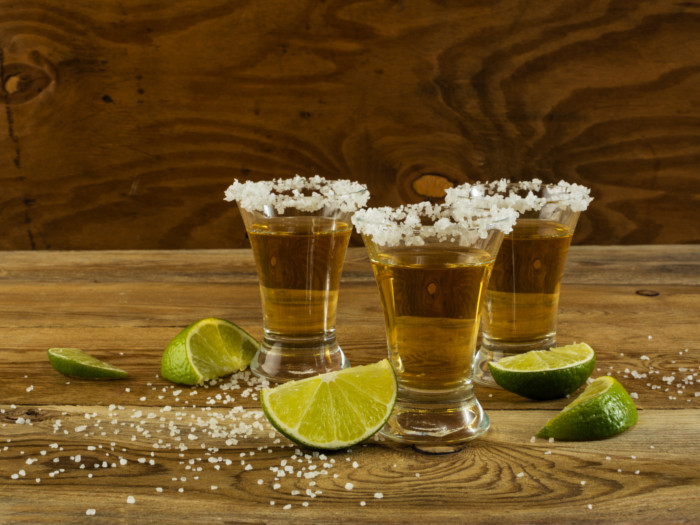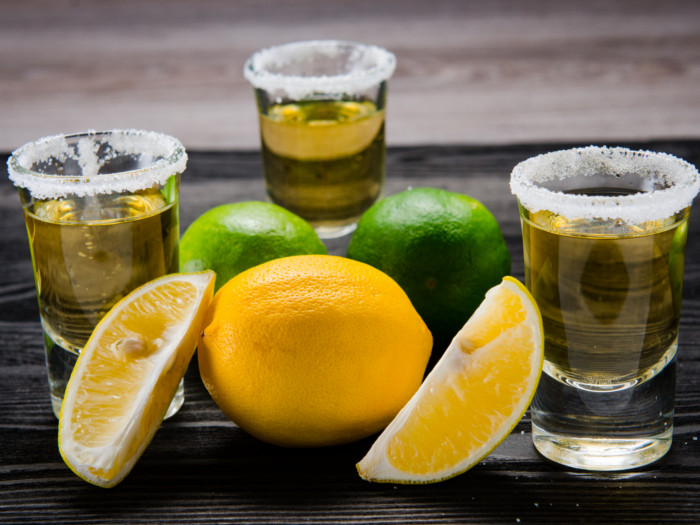Once associated with Mexican bandits and cowboys, tequila has steadily gained ground among a wider population. From frat parties to more upscale bars, tequila is one of the most popular liquors in the world. One of the charms of tequila is its strong cultural roots. Tequila is also used in many classic cocktail recipes, including margarita and tequila sunrise.
What is Tequila?
Tequila is a type of liquor made from the blue agave plant. It is a succulent plant, native to the Americas. Tequila is made from the heart of the agave plant, known as piña. It is a large bulb that grows underground. It is slowly baked to convert its starch into sugar. The baked pina is then crushed to extract the sugar, which is then fermented into alcohol.
Legally, it can only be made in the Jalisco region of Mexico. The name itself comes from the town of Tequila, where a large percentage of production still occurs. It is often confused with mezcal and is indeed a type of mezcal, but mezcal can be made from any type of agave. [1]
Types of Tequila
There are more than 300 different types of tequila on the market, and they range in color from completely pure to a dark brown color. The aroma is similarly diverse, depending on what type of alcohol you are consuming. There are four main types of tequila:
- Blanco – A pure white or clear spirit that has been allowed to age for less than 2 months
- Reposado – Aged between 2 months and 1 year in oak barrels
- Anejo – Aged between 1 year and 3 years in oak barrels
- Extra Anejo – Aged for at least 3 years
Serving Size : Nutrient Value Water [g] 78.8 Energy 110 Energy [kJ] 460 Protein [g] 0.3 Total lipid (fat) [g] 0.1 Ash [g] 0.1 Carbohydrate, by difference [g] 11.3 Iron, Fe [mg] 0.02 Magnesium, Mg [mg] 7 Phosphorus, P [mg] 10 Potassium, K [mg] 10 Sodium, Na [mg] 57 Zinc, Zn [mg] 0.6 Copper, Cu [mg] 0.04 Manganese, Mn [mg] 0.01 Vitamin C, total ascorbic acid [mg] 19.3 Thiamin [mg] 0.04 Riboflavin [mg] 0.02 Niacin [mg] 0.19 Pantothenic acid [mg] 0.09 Vitamin B-6 [mg] 0.05 Folate, total [µg] 11 Folate, food [µg] 11 Folate, DFE [µg] 11 Vitamin A, RAE [µg] 5 Vitamin A, IU [IU] 97 Alcohol, ethyl [g] 9.4 Sources include : USDA [2]
Tequila Nutrition
Tequila is seen as a ‘healthy drink’ because it contains lesser calories than other liquors. It has 64 calories per shot, as compared to nearly 100 calories in a shot of vodka. Pure tequila is low in sugar and has a natural sweetness. It contains no carbohydrates. This makes it gluten-free.
Health Benefits: Myth Vs Reality
Tequila is almost always the favorite in any party circuit. But of late it has gained popularity as a ‘health’ drink. But what is the truth behind the hype? Is tequila healthy? With low sugar and no carbs, it’s not a bad choice in liquor. But like anything containing alcohol, it comes with plenty of riders. Let’s take a small reality check:
Weight Loss: Tequila is often touted as the best drink for weight loss as it contains less sugar and is less calorific per shot than most other liquors. But there is no conclusive research to support this claim. One must also keep in mind that while tequila itself may not be high in sugar, a tequila cocktail may contain other ingredients with high sugar content.
Good for Bones: An animal research indicated that tequila may be good for our bones. However, if one goes beyond the headlines, there are plenty of flaws in this claim. As a Harvard article points out, the research associating tequila with strong bones has not been tested on humans. Most importantly, it uses agave fructans and not tequila. [3] [4]
Full of Agavins: Some people attribute tequila with benefits of agave, particularly agavins and fructans which may be beneficial for our health. For instance, one research by the American Chemical Society found that agavins may help lower blood glucose levels in people with diabetes. However, it is important to note here that agavins are the carbohydrates that are cooked to produce tequila. In the process, it breaks down. Hence, the finished tequila does not contain agavins. [5]
One must also keep in mind that tequila contains alcohol, which can have harmful consequences if not taken responsibly. As a distilled spirit, tequila has a typically high concentration of alcohol, ranging from 40-46 percent. This is why the standard serving of tequila is small. A typical tequila shot is 1.5 ounces.
How to Make Tequila?
For those who truly love this alcohol, it is possible to make your own tequila at home, but it can be an involved process. However, alcohol consumption, if done in an excessive manner, can lead to short-term health risks such as violence and injuries as well as long-term health risks such as addiction, alcohol abuse, and chronic diseases. Keeping these guidelines in mind, let us look at the recipe for tequila. [6]

Tequila Recipe
Ingredients
- 15 pounds of agave plant
Instructions
- To make tequila, first, you must harvest the agave from one of the limited regions where blue agave plants grow in Mexico.
- You will need to cook the agave and then crush the agave hearts, which mills and squeezes the juice that is necessary for the production of the alcohol.
- You must then store a large amount of agave juice in a fermenting vat until the alcohol begins to form.
- At this point, you can store the alcohol in large oak barrels and allow them to age for anywhere between two months and five years.

Notes
Tequila Risks & Side Effects
Alcohol consumption can be a tricky matter as it needs to be done in moderation and has the potential to turn into an addiction. According to the Centers for Disease Control and Prevention, people who should not drink alcohol include women who are pregnant, individuals younger than 21 years of age, and people who are recovering from alcoholism or cannot control the amount they drink. Also, it should be avoided by people who are planning to drive or any other activity that required focus, alertness, and skill. [7]
Different countries have different legal guidelines on alcohol consumption. According to The 2015-2020 Dietary Guidelines for Americans, if alcohol is consumed, it should be done in moderation. The guidelines define moderate drinking as up to 1 drink per day for women and up to 2 drinks per day for men, which applies to adults of legal drinking age. [8]
If consumed in excess, tequila will result in the following:
- Potential nausea
- Dizziness
- Lack of coordination
- Dehydration
- Constipation
- Headaches
- Vomiting
- Body aches
- Weakness
Essentially, tequila is a form of alcohol that can get you drunk, and while hangovers are less likely, excessive consumption will definitely result in a painful morning. [9]

